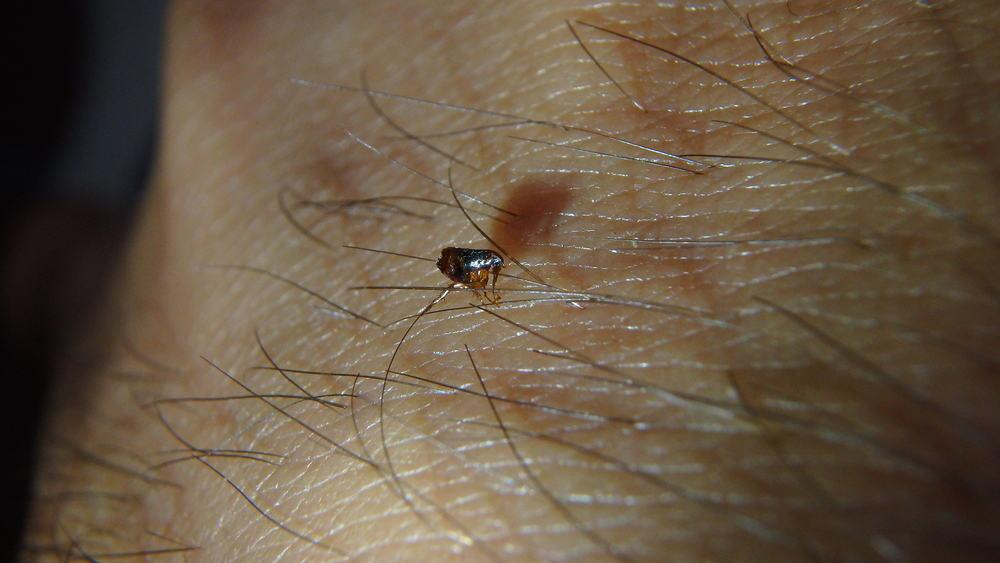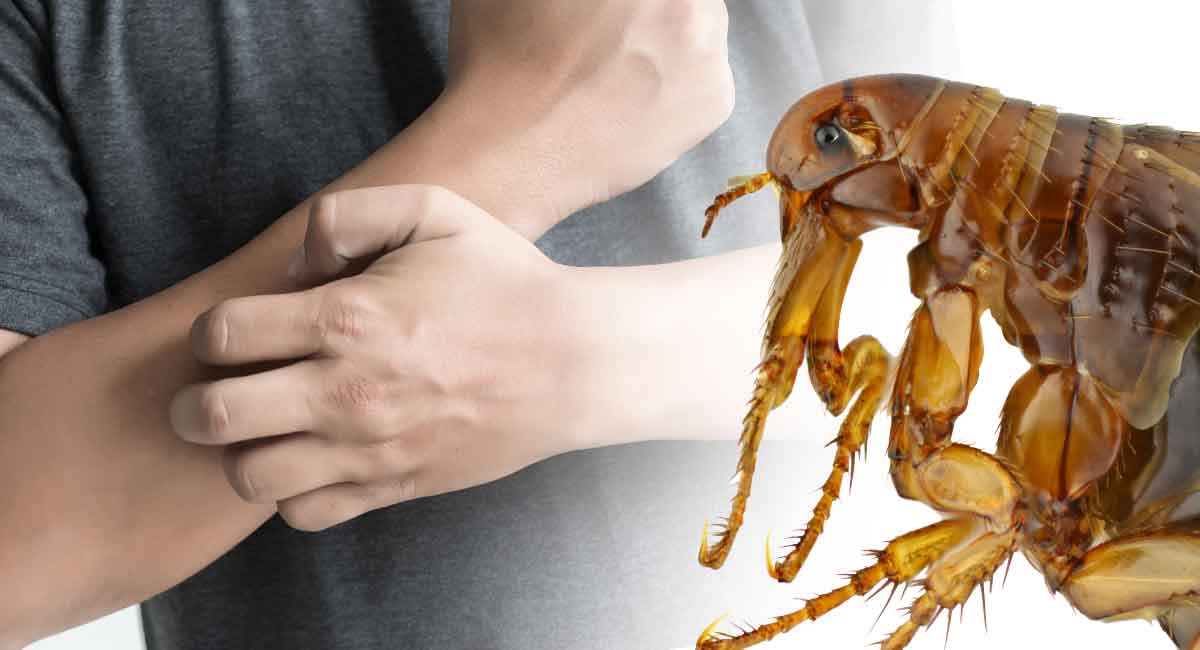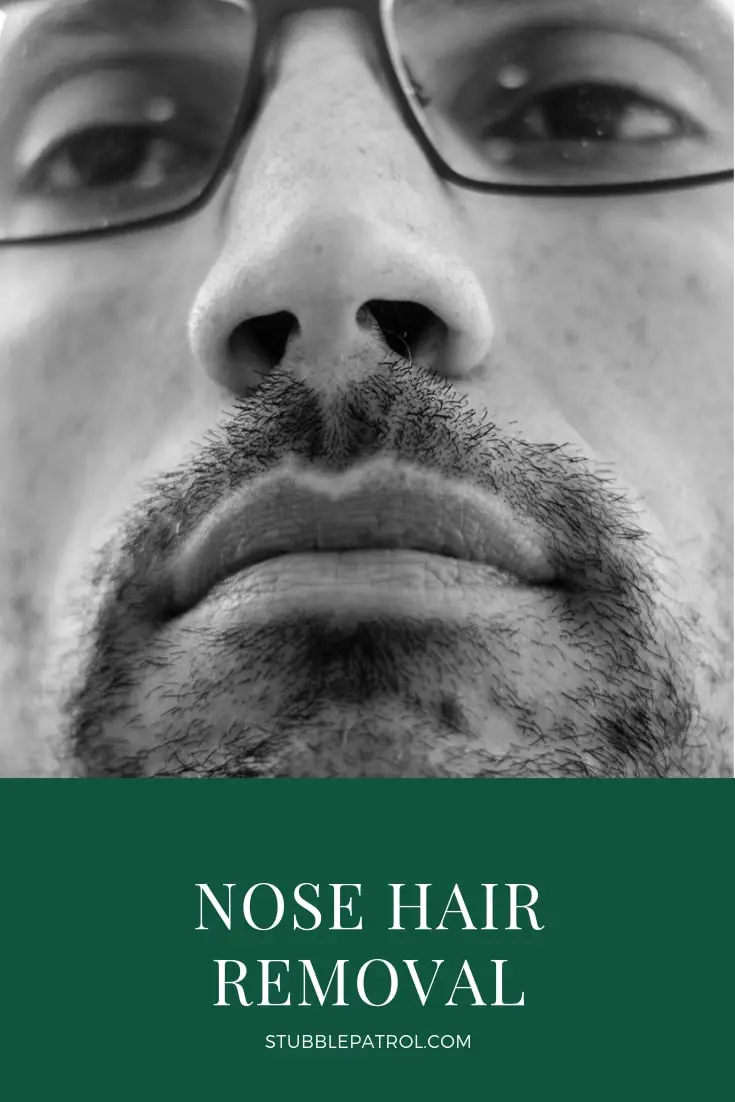Table Of Content

How do you know if you still have fleas on your carpet near your furniture? If you have a flea problem, you’ll be able to see these creatures hopping on and off your socks while you walk around infested areas. Once the adult fleas hatch, they will hop right onto the closest host they find and will seek a blood meal.
How To Treat Fleas In Human Hair?
It is very unlikely that a flea will stay on your body for any substantial amount of time. Humans do not have fur or feathers like other animals and birds, which allow them to lay eggs and repopulate on a regular cycle. You’re likely to wash or scratch off a flea well before they can breed. If your pets are already infected with fleas, visit your veterinarian.
Can Fleas Live on Humans?

Yes, humans can inadvertently carry fleas from one home to another. Fleas may latch onto clothing, bags, or shoes, allowing them to hitch a ride to a new location. Although fleas cannot reproduce on humans, they can still survive long enough to find a suitable host in their new environment. Additionally, a dog’s dense fur provides an ideal hiding place and breeding ground for these pests. The natural odors produced by dogs, such as the scent of their skin and the oils in their fur, also attract fleas more than human scents do. More often, humans will have other types of mites or head lice that they might mistake for fleas.
Best Flea Treatments for Cats, According to Veterinarians - TIME
Best Flea Treatments for Cats, According to Veterinarians.
Posted: Mon, 24 Jul 2023 00:27:53 GMT [source]
Allergic reactions
Nizoral anti-dandruff shampoo contains ketoconazole 1% to relieve flaking, scaling, and itching caused by dandruff. The product is salon-tested, and it’s specially formulated to be gentle and is safe enough to be used on color-treated, chemically processed, and gray hair. Of course, this isn’t always possible, so you may also want to treat your clothes and skin with an insecticide before coming into contact with flea-infested animals.
Bedbugs
This shampoo product helps transform unwanted scalp concerns. Not only will this protect you, but it’ll make your hair appear healthier-looking. So if you want to prevent fleas from getting in your hair, you need to keep your hair clean and free of debris. Everyone knows that keeping your hair clean is important for preventing fleas from getting there. To use apple cider vinegar and soda to get rid of fleas, mix equal parts apple cider vinegar and soda in a bowl. Next, kill the fleas by submerging them in soapy water; this will suffocate them and prevent them from escaping.
With ABC’s help, both you and your pets will be able to rest easy in your flea-free home. Most of the time, fleas use human hair and skin as a mode of transportation—not a permanent living space. Even when these creatures are starved of cat or dog blood and have to settle with feeding on us, fleas still don’t spend most of their time on us, as they do on our pets. If your pet has fleas, you may be more likely to have fleas on your body, but they often don’t survive for long.
Whenever you’re treating your pet for fleas, also consider flea control in your home. Fleas love warm, hidden places, making carpets, furniture and other soft furnishings the perfect habitat for their larvae and flea eggs. Regular vacuuming and use of a household flea treatment spray can help rid your home of fleas. If your dog or cat has fleas, one of your first thoughts might be, “Can dog and cat fleas live on humans, too? Fleas can bite humans, but they typically live on animals. You may need to treat your pet and home to get rid of fleas.
The Myth of Fleas and Humans
They will stay but only for a short period as they won’t be able to survive the environment and living conditions the human hair provides. Humans may also experience hair loss, crusts (scabs), pustules (pus bumps), papules (bumps), and erythema (redness). The head may also become painful and sore due to flea bites – but the flea allergy is treatable. Intense scalp itching followed by the appearance of red welts, bumps, or pus-filled blisters (usually on the neck or scalp) can be symptoms of flea bites. Individuals allergic to flea saliva may experience irritation, redness, and scalp inflammation.
Do lice like dirty hair? Treatment, prevention, and more - Medical News Today
Do lice like dirty hair? Treatment, prevention, and more.
Posted: Mon, 20 Nov 2023 08:00:00 GMT [source]
While fleas don’t often live on humans, they sometimes jump onto us and stay until they find an animal or bird to move to. But the flea is more likely to jump onto an animal, into your yard, or hide in your house. If it does get into your hair, you’ll probably wash or scratch it off long before it bites you, lays eggs, or jumps onto other people. Fleas don’t live in human hair because the conditions aren’t right for them, but they may jump onto a person and stay there until they find an animal or bird to feed off. These fleas decide where they lie in wait, and it might be in that person’s hair. Yes, humans can get fleas in their hair from infested environments.
Probably the biggest reason why fleas live on animals rather than humans is that our blood does not give fleas the nutrients they need to survive or reproduce. Of the 2 500+ flea species in the world, only one can thrive on human blood. Though flea infestations in human hair are uncommon and typically not serious, they can cause discomfort, irritation, and possible skin infections from scratching. It’s essential to take prompt actions to get rid of fleas in your hair and protect yourself from future infestations. Fleas are excellent jumpers, so if a person’s head is close to a flea-infested surface or animal, the fleas may take the opportunity to jump onto the human’s hair.
Fleas live on the blood of warm-blooded animals, and they will live on mammals or birds. Their bodes are designed to be able to maneuver easily through thick fur or feathers, so they can stay protected and undetected. They feed on the blood of their hosts, and they get to the blood be biting. The bites can cause itching and sometimes allergic reactions. Some people may have an allergic reaction to flea bites; their skin can become swollen, itchy and irritated, sometimes displaying red bumps, hives or a rash. If this happens, it’s best to visit a healthcare professional.

No comments:
Post a Comment